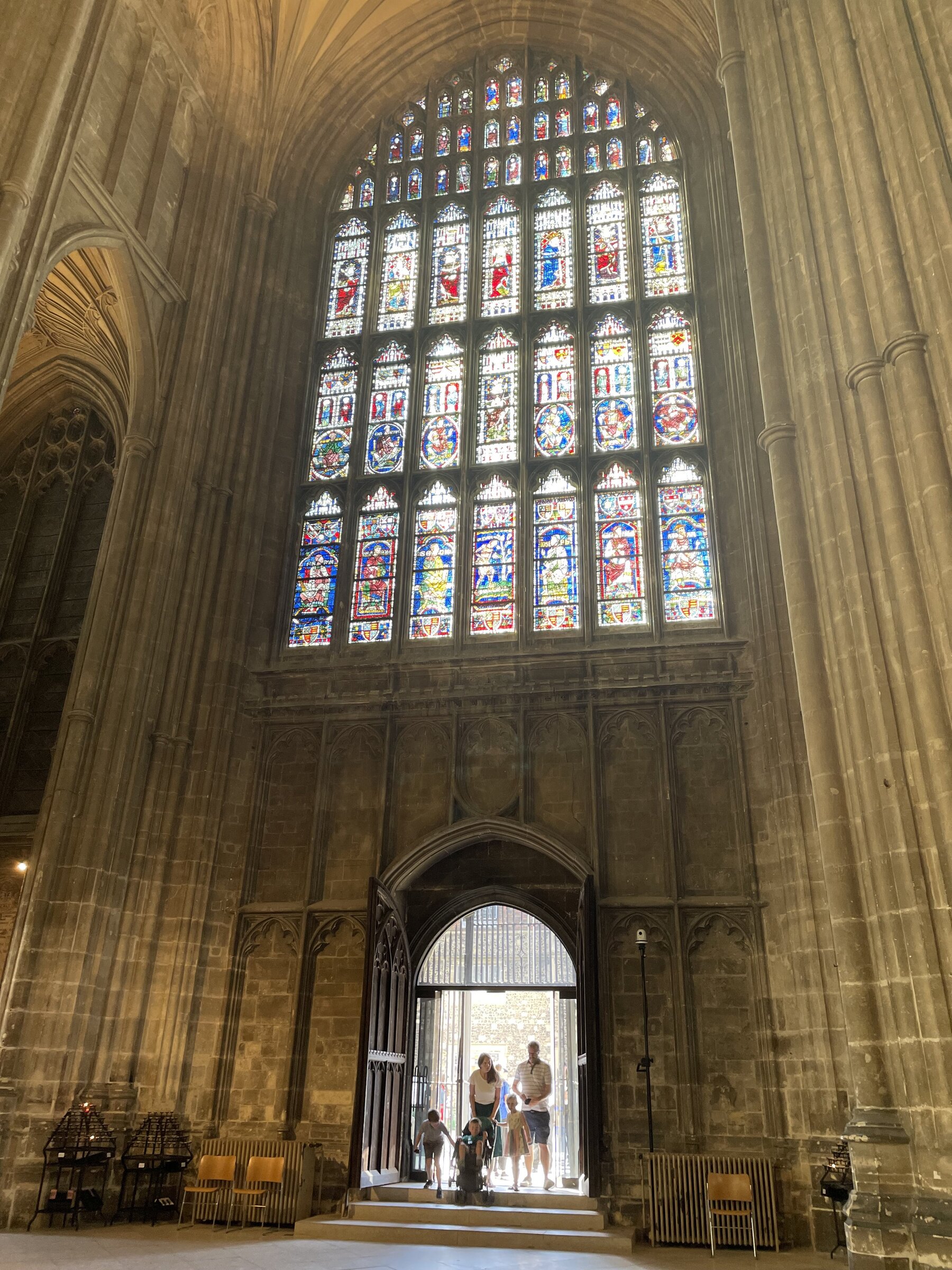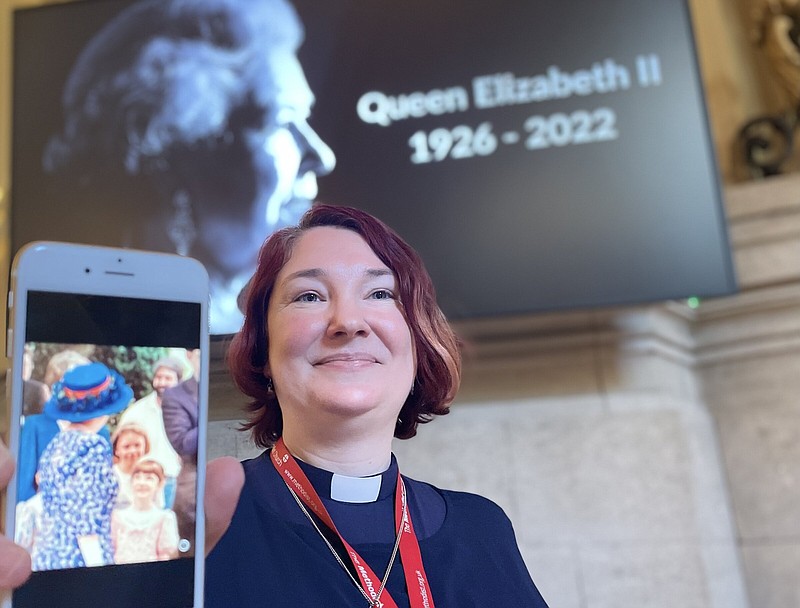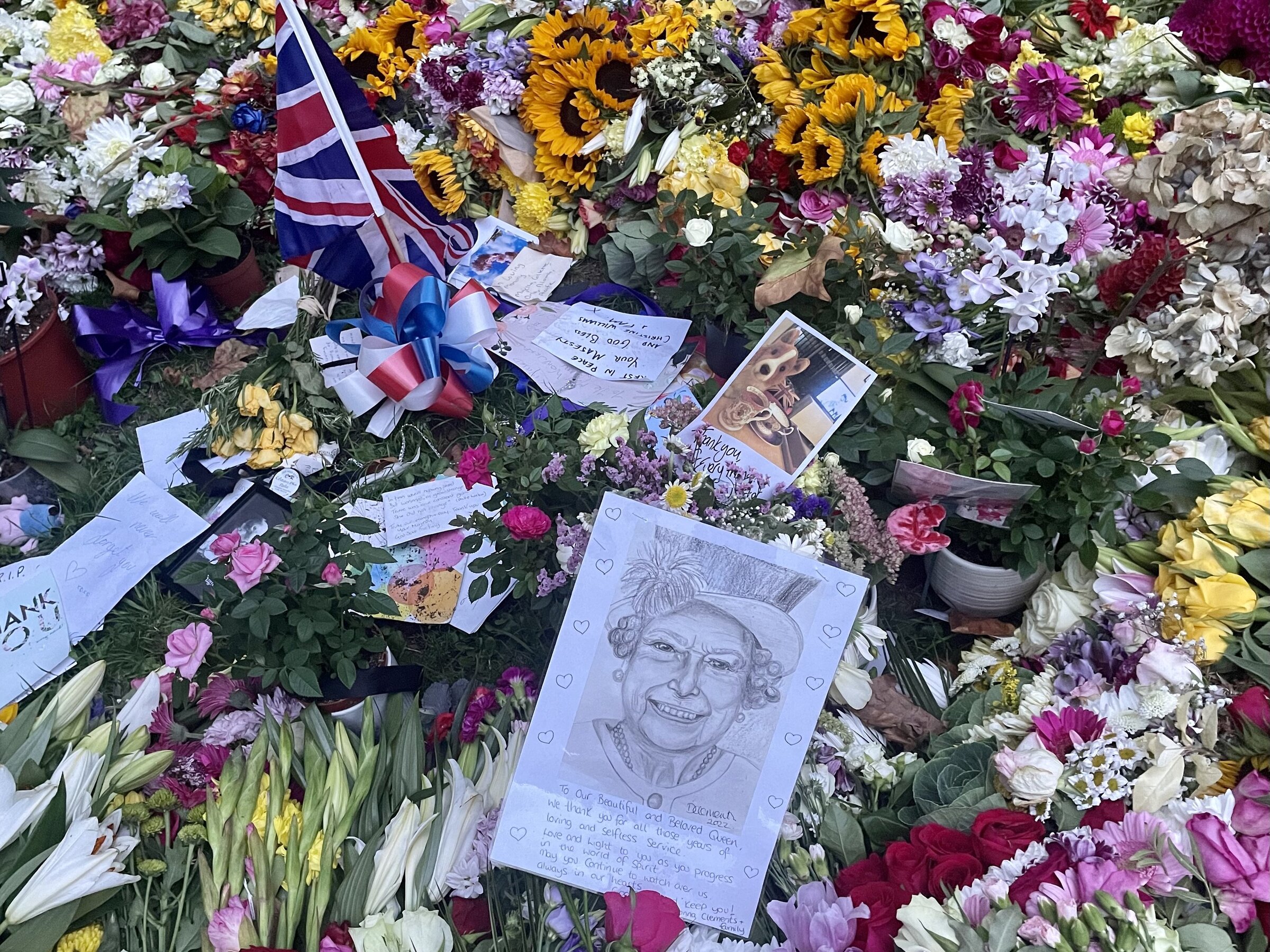LONDON -- Following the death of Queen Elizabeth II, tens of thousands of mourners lined up to leave flowers outside the gates of Buckingham Palace. Along the banks of the Thames, hundreds of thousands more queued up, willing to stand in line 30 hours, if necessary, to bid farewell to their departed sovereign.
The multitudes, while eager to honor their beloved monarchy's memory, were far less interested in praying for her soul.
On Monday, roughly 150 people showed up for a midday Requiem Eucharist at Westminster Abbey, the site of the her wedding in 1947, her coronation in 1953 and the place where her funeral would be held, one week hence.
Turnout for Evensong, hours later, was similarly sparse.
Those who attended were able to glimpse the place where Elizabeth swore, 70 years ago, to "maintain the Laws of God and the true profession of the Gospel," where she kissed the Bible, recited the Nicene Creed, received Communion, and was anointed with holy oil before receiving her crown and scepter.
The empty seats, royal observers say, weren't particularly surprising.
Although her majesty was much beloved, there is less enthusiasm for the Church of England, which she oversaw as supreme governor. During this second Elizabethan era, it was the royal crown, not the archbishop's mitre, that inspired high devotion; the scepter, not the shepherd's staff, that citizens came to adore.
Across much of the realm, the established church is slowly fading.
"Britain has become a more multi-ethnic society in the last 70 years. And indeed the churches, the religious institutions, which have experienced growth are largely in the immigrant population," said Stephen Bates, a former religious affairs and royal correspondent of the Guardian newspaper.
"In 1952, when the Queen came to the throne, the Church of England was a more influential body and more people attended it. It is in longtime and long-term decline in attendance," he said.
Church of England parishes were losing members during the dawn of her reign. The decline has continued for seven decades.
In 1970, average Sunday attendance stood at 1.5 million. By 2019, it had fallen to 679,800.
In 2020, with covid-19 raging and public gatherings restricted, attendance plummeted even more.
In many parishes, it has not yet recovered.
Today, fewer than 1 out of every 100 Britons worships at an Anglican parish on a typical Sunday.
After the Queen's death, many churches (Anglican and otherwise) opened their doors so that mourners would have a place to light candles and pray.
At Canterbury Cathedral, a steady stream of visitors left floral bouquets near the entrance way or filed in to sign condolence books. Most exited soon thereafter.
Those who remained were invited to attend A Requiem for Her Majesty Queen Elizabeth II.
After receiving the body and blood of Christ, they asked God to bring "our late Queen Elizabeth and all the faithful departed, into the presence of your eternal home," then closed by singing "God Save the King."
TRUE AND FAITHFUL
Regardless of what others did, Queen Elizabeth remained a true and faithful member, attending services regularly and speaking openly about her faith, particularly during her annual Christmas addresses to the nation.
In increasingly secular Britain, the sovereign's witness was noticed.
"Some people had started saying she was the last true believer in the country," Bates said.
In this kingdom, church and state have been entwined almost since its foundation, all the more so since Henry VIII wrested control of religious affairs from the Catholic Church.
While rejecting Rome, Henry and his successors held onto the title Pope Leo X had bestowed upon him: Defender of the Faith. The Latin abbreviations on each pence and each pound are a reminder that the house of Windsor holds power "By the Grace of God."
Faith, for Elizabeth, was more than just tradition, Bates said. The Bible was God's word; not simply King James'.
"I think the one thing -- of much -- you can say about the Queen's religious belief was that it wasn't cultural deism: it was deeply engrained, serious, personal and sincere, perhaps more so than any monarch since the Middle Ages," Bates said.
A POPULAR QUEEN
But her willingness to welcome people of all faiths made her popular, not only among Anglicans but also with other Protestants, Catholics, Muslims, Hindus, Sikhs, Jews and others, Bates said.
Ali McMillan, a deacon who ministers at Methodist Central Hall, across the street from Westminster Abbey, was 6 years old when she met Queen Elizabeth.
Thirty-two years later, she has a photo of the encounter that she treasures, along with memories of a monarch she says was truly a servant leader.
"She served the people and the country every moment really," McMillan said.
During her 96 years, Elizabeth was not only a model monarch but also an exemplary follower of Jesus Christ, McMillan said.
"She has been one of the greatest witnesses to the Christian faith in this country that we've had and one of the greatest evangelists," she said.
Rather than focusing on Santa, reindeer and the North Pole, Queen Elizabeth emphasized Jesus, the manger and Bethlehem, McMillan noted.
"In her Christmas message every year, she always spoke about her faith, about who Jesus was to her," she said. "She was such a woman of faith and had a real personal relationship with God. You could tell that in how she spoke and in how much she prioritized her faith in all that she did."
Like the Anglican Church, the Methodist church in England has seen its membership and attendance figures fall in recent decades.
But some congregations, including the one meeting at Methodist Central Hall, are growing, and McMillan has faith that better days are ahead.
"We stay hopeful to God and pray that God's got a plan for us. We are a church of death and resurrection, after all," she said.
 In Canterbury Sunday, British families flocked to the city’s historic cathedral, pausing to leave flowers, light candles or sign a condolence book honoring the memory of Queen Elizabeth II. With Church of England attendance down sharply in recent years, most of the mourners didn’t stick around to pray for their deceased monarch’s soul. (Arkansas Democrat-Gazette/Frank E. Lockwood)
In Canterbury Sunday, British families flocked to the city’s historic cathedral, pausing to leave flowers, light candles or sign a condolence book honoring the memory of Queen Elizabeth II. With Church of England attendance down sharply in recent years, most of the mourners didn’t stick around to pray for their deceased monarch’s soul. (Arkansas Democrat-Gazette/Frank E. Lockwood)
